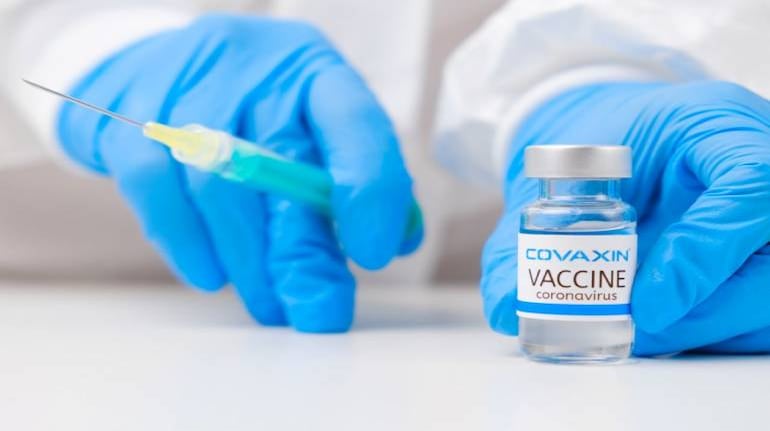



Animal rights NGO People for the Ethical Treatment of Animals (PETA) India wrote to the Drugs Controller General of India (DCGI) on June 17, requesting that Newborn Calf Serum (NBCS) used to produce Bharat Biotech’s COVID-19 vaccine Covaxin be replaced with an animal-free chemical solution.
In a letter addressed to DCGI’s Dr VG Somani, PETA sought directions to vaccine manufacturers to consider its proposal to use a non-animal alternative for vaccine production.
The PETA move comes following reports that Covaxin –indigenous coronavirus vaccine developed by Hyderabad-based Bharat Biotech in collaboration with the Indian Council of Medical Research (ICMR) -- uses NBCS in the production stage. The NBCS is reportedly extracted from the blood of slaughtered newborn calves that are less than 20 days old.
PETA India Science Policy Adviser Dr Ankita Pandey: “The calves used in the extraction of this serum are taken away from their mothers shortly after birth, which traumatises and distresses both the mother and calf.”
“PETA India looks to the Drugs Controller to ensure that vaccine manufacturers switch to available animal-free media that overcome the limitations associated with the use of animal-derived serum.”
Notably, the Prevention of Cruelty to Animals (Slaughterhouse) Rules, 2001, prohibits the slaughter of pregnant animals and animals aged less than three months.
Highlighting how use of animal-derived serum could delay vaccine production if shortages are experienced, PETA in its letter to the DGCI said: “Animal-free media are already commercially available and can be used to grow Vero cells for virus production instead of using NBCS extracted by slaughtering calves.”
It added: “PETA India and its affiliate scientists have been leading efforts to end the use of animals for the production of serum. PETA Science Consortium International, of which PETA India is a member, has online resources that researchers can use to replace foetal bovine serum and NBCS in cell culture media.”
Meanwhile, the Central government has released a clarification stating Covaxin does not contain newborn calf serum. The Centre said: “… Facts have been twisted and misrepresented… Newborn Calf Serum is used only for preparation or growth of vero cells.”
The Union Health Ministry has explained that this technique has been used for decades in Polio, Rabies, and Influenza vaccines. “These vero cells, after the growth, are washed with water, with chemicals (also technically known as a buffer), many times to make it free from the newborn calf serum. Thereafter, these vero cells are infected with coronavirus for viral growth.”
"The vero cells are completely destroyed in the process of viral growth. Thereafter this grown virus is also killed (inactivated) and purified. This killed virus is then used to make the final vaccine, and in the final vaccine formulation no calf serum is used.”
(With IANS inputs)
Follow our coverage of the coronavirus crisis here
Discover the latest Business News, Sensex, and Nifty updates. Obtain Personal Finance insights, tax queries, and expert opinions on Moneycontrol or download the Moneycontrol App to stay updated!
Find the best of Al News in one place, specially curated for you every weekend.
Stay on top of the latest tech trends and biggest startup news.